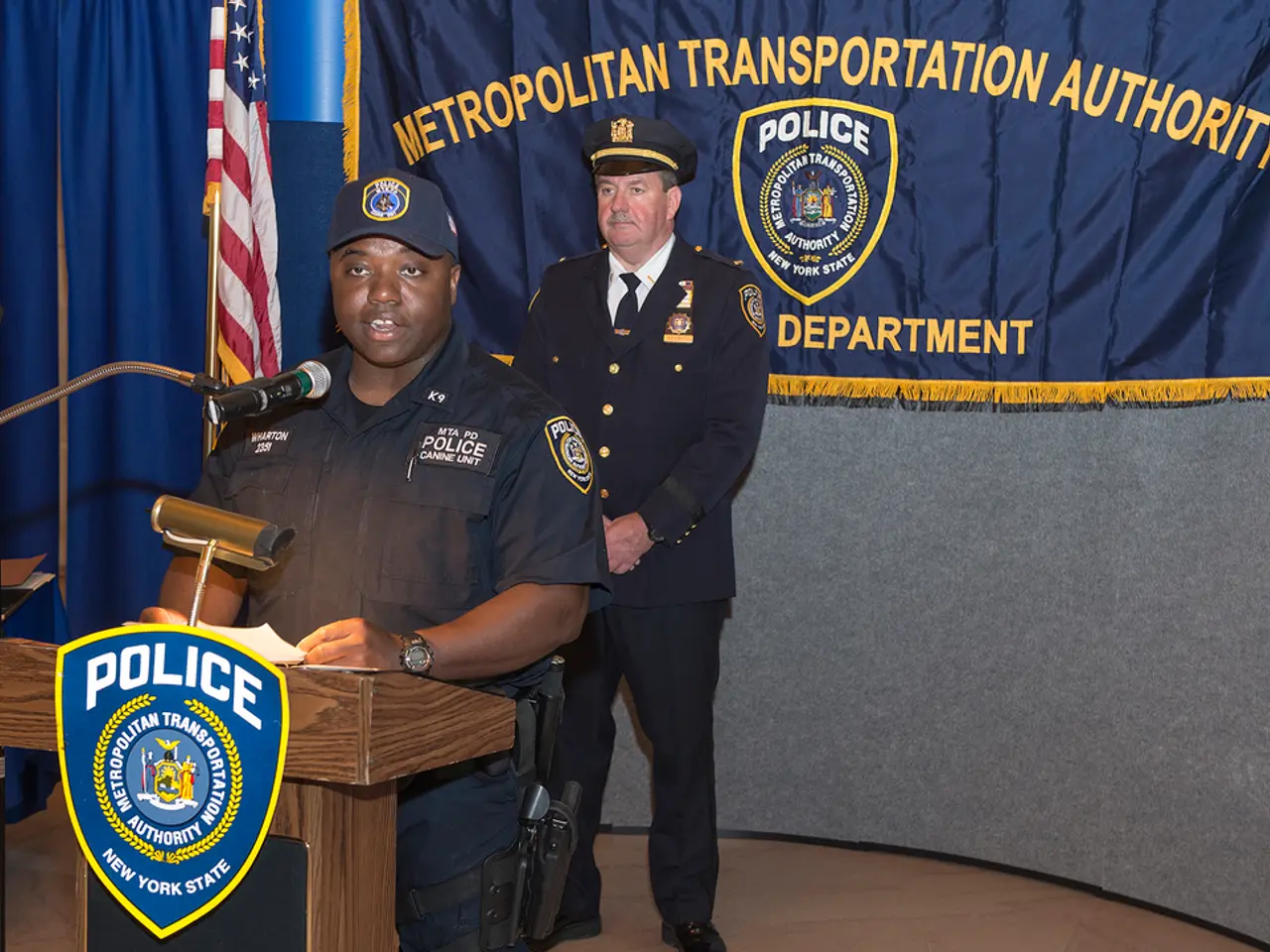Unsolicited Viewpoint: No Valid Argument against Public Release of Jabari's Body Camera Recordings
In two separate incidents in Alabama, the shootings of Steven Perkins and Jabari Peoples by local police forces have sparked controversy and raised questions about transparency and accountability.
In the Perkins shooting, a Morgan County Circuit Court judge determined that the Decatur Police officers were not acting as police and had no right to claim self-defense [1]. The judge's ruling came after it was revealed that the officers never ordered Perkins to drop his weapon before shooting him, and that entire portions of the body cam footage were edited out [2]. The Decatur Police Department, in a statement, suggested that Perkins threatened a tow truck driver with a gun, refused to drop his firearm, and turned the weapon on them before being shot and killed [3]. However, the ALEA-produced video from the shooting was edited in a way that seemed to show Perkins threatening officers with a gun [4]. The full, unedited body cam video from the Perkins shooting has not been released yet.
Footage from nearby security cameras showed a police ambush in the shooting of Steven Perkins, with officers hiding in the dark and surprising him without giving an opportunity to comply [4]. The cops hid their vehicles down the street and never alerted Perkins to their presence [2].
In a different incident, Jabari Peoples was fatally shot by an unidentified Homewood police officer in late June. The narrative provided with the video suggests that Peoples had a gun in the car, resisted arrest, and was shot in the back while retrieving the gun from his car door [5]. However, the unedited body cam video from Jabari Peoples' shooting is not publicly available because the Homewood Police Department has decided not to release it to the public, despite the family's approval to view the footage. Authorities have only shown the family attorneys edited footage beginning from the moment a struggle began, as the officer did not activate the body camera until that encounter started [5].
The Alabama Law Enforcement Agency and others have been accused of providing heavily edited and incomplete bodycam footage, leading to skepticism from Peoples' family attorneys and defense lawyers. The family's lawyer described the footage released as "clearly edited," expressing confusion about why a partial clip was provided rather than the full raw video [5]. Meanwhile, the district attorney stated the footage reviewed included only the period from the struggle onward, and no evidence was found to suggest anything occurred prior to the struggle to alter the narrative [1][3].
A bill that would make all body camera footage public record was rejected by the Senate Judiciary Committee last year, which may explain part of the legal or procedural basis for withholding the complete video from public release [1].
These incidents have raised concerns about the transparency and accountability of law enforcement agencies in Alabama. As bodycam footage continues to play a crucial role in investigating police shootings, ensuring the public has access to complete and unedited footage is essential for maintaining trust and promoting justice.
References:
- AL.com
- WVTM 13
- WBRC Fox 6 News
- CBS 42
- AL.com
- The controversial shooting of Steven Perkins by Decatur Police officers has been met with questions about transparency and accountability in law enforcement.
- A Morgan County Circuit Court judge ruled that the Decatur Police officers were not acting as law enforcement and had no right to claim self-defense.
- The shooting of Steven Perkins was met with controversy after it was revealed that portions of the body cam footage were edited out.
- The Decatur Police Department suggested that Perkins threatened a tow truck driver with a gun before refusing to drop his weapon.
- However, the ALEA-produced video from the shooting seemed to show Perkins threatening officers with a gun.
- Footage from nearby security cameras showed a police ambush in the shooting of Steven Perkins.
- The cops in the Perkins shooting hid their vehicles down the street and never alerted Perkins to their presence.
- In a separate incident, Jabari Peoples was fatally shot by an unidentified Homewood police officer.
- The narrative provided with the video suggests that Peoples had a gun in the car, resisted arrest, and was shot in the back while retrieving the gun from his car door.
- The Homewood Police Department has decided not to release the unedited body cam video from Jabari Peoples' shooting to the public.
- The Alabama Law Enforcement Agency and others have been accused of providing heavily edited and incomplete bodycam footage.
- The family's lawyer described the released footage from Jabari Peoples' shooting as "clearly edited."
- The district attorney stated the footage reviewed only included the period from the struggle onward.
- A bill that would make all body camera footage public record was rejected by the Senate Judiciary Committee last year.
- Ensuring the public has access to complete and unedited body camera footage is essential for maintaining trust and promoting justice.
- Amid these incidents, concerns about the transparency and accountability of law enforcement agencies in Alabama continue to rise.
- These controversies intersect with broader discussions about civil rights, including responsible gambling, mental health, and other health-and-wellness issues, crime and justice, sports, and entertainment—all significant aspects of policy and legislation within politics.




